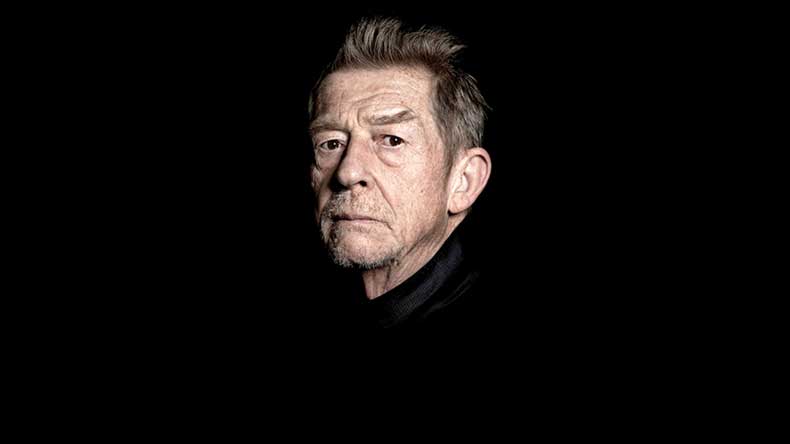John Hurt, who died on 25 January at the age of 77, has been part of my cinematic pantheon for nearly as long as I’ve been watching movies. Bursting into my consciousness as the casualty of movie history’s most memorable kill in Alien, he initially registered to me as the medium’s most ubiquitous “old guy”. And, indeed, between his gravelly voice, lined face and perpetually sagacious demeanor, that original conception of his screen persona isn’t necessarily far off the mark. Hurt was in his late 30s while filming Alien but nevertheless came off as the old soul on that marvelous cast. And old souls he continued to play, right through to his last role as a worldly priest in Pablo Larrain’s Jackie. On the way, he gathered Oscar nominations, Golden Globes, BAFTAs and a CBE, all without losing sight of humility and the empathetic performances that tend to spring from that quality.
Despite the fact that most moviegoers will likely remember him as Ollivander from the Harry Potter franchise or as the exploding incubator for a chestburster, his five-plus decades in the business encompassed a truly staggering variety of roles. He started off on a respectable note in the English cinema with early roles in period dramas like the 1966 film A Man For All Seasons. The 1970s, however, saw him shifting more and more into edgier fare like Oliver Stone’s 1978 prison flick Midnight Express (his international breakout role) and genre pictures like Alien. Old souls come in various flavors — philosophical, impish, imperious, mad — and Hurt had the range to play each state with conviction. After the one-two punch of Alien and Midnight Express, he made an enormous impression in 1980 as Joseph Merrick, the protagonist of David Lynch’s The Elephant Man. It’s that performance more than any other that showcases his ability to bring dimension to whatever role is assigned to him. He effectively projects the essential tragedy of Merrick’s story without succumbing to sentiment, locating the character’s dignity and humanity from under several pounds of grotesque makeup. In this particular case, Hurt’s work was helped along by the distinctive talents of director and co-scripter Lynch but he couldn’t always count on such support. His facility with fleshing out even the most underwritten of characters came in handy dozens of times, especially later in his career when he was inevitably cast as impossibly wise exposition-spouters. As a result, his committed turns livened up countless iffy movies like Indiana Jones and the Kingdom of the Crystal Skull, Frankenstein Unbound and Rob Roy.
Hurt was jumping headfirst into B-movies at a time when award-winning prestige performers of his ilk generally avoided them or, at the very least, demanded budget-breaking paychecks.
The less-than-respectable corners of his filmography provide another important insight into Hurt’s approach to acting — an enduring sense of fun and adventure. Hurt was jumping headfirst into B-movies at a time when award-winning prestige performers of his ilk generally avoided them or, at the very least, demanded budget
After that many years in the business, it would have been easy to become cynical, bored or standoffish but numerous interviews revealed a continual engagement with and fondness for movies of all kinds. Hurt never stopped loving what he did and it showed in the work. Keeping up that steady stream of committed and complicated performances, he straddled the old and the new, bringing experience to evolving modes of popular cinema without ever condescending to the material. No one can pull that off quite as skillfully and enthusiastically as he did.

